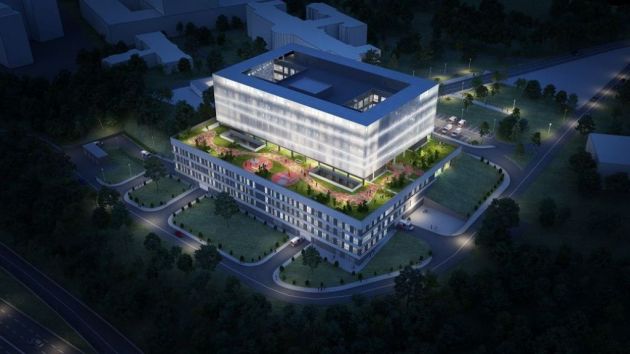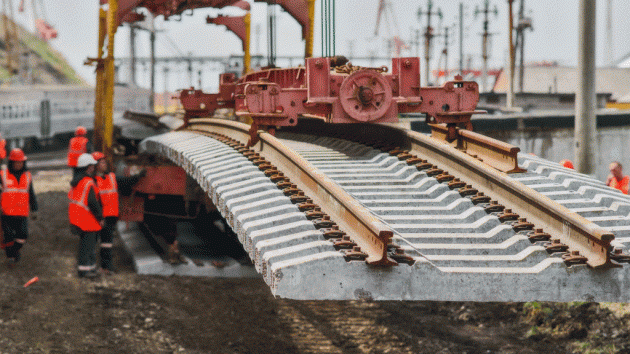MILO ─ÉUKANOVI─å Prime Minister of the Republic of Montenegro
 Thursday, 01.01.1970.
Thursday, 01.01.1970.
 15:07
15:07
MILO ─ÉUKANOVI─å
Prime Minister of the Republic of Montenegro
Milo Djukanovic, the Prime Minister of the Republic of Montenegro, was born on February 15th 1962 in Niksic. He completed his elementary education in Niksic and Podgorica and finished the Secondary Commercial School in Podgorica were he afterwards graduated at the Faculty of Economics ŌĆō the University of Montenegro. He is Montenegrin national. He and his wife Lidia, maiden name Kuc, have a son named Blazo.

DjukanovicŌĆÖs political carrier started in his youth. He was a member of the StudentsŌĆÖ Alliance and the Alliance of Socialist Youth. He soon became a senior official of youth organisations in both Montenegro and Yugoslavia. In the former SFRY he was the youngest member of the Central Committee of the Communist Alliance of Yugoslavia. He become recognised as an advocate of social changes and reforms. The disintegration of the second Yugoslavia found him at the position of the Montenegrin Prime Minister. He was at the time the youngest prime minister in Europe. He was appointed to that post on February 15th 1991 on his 29th birthday. He served out four consecutive terms office by October 19th 1997 when he won the RepublicŌĆÖs presidential elections. He was inaugurated on January 15th 1998. In late 1996 and early 1998 he came into open conflict with Slobodan Milosevic and his Belgrade regime, whose politics he publicly dismissed as ruinous and referred to Milosevic himself as a man of the past. That resulted in the clash in the ruling Democratic Party of Socialists, with him as its vice-president. At the time, the president of the Republic of Montenegro and the President of the Democratic Party of Socialists was Momir Bulatovic, who, along with his associates, took MilosevicŌĆÖs side. In the aforementioned elections held in October 1997, he beat Momir Bulatovic as his opposing candidate. Considerable, progressive part of DPS, civic opposition parties, intellectual circles and democratic Montenegrin society supported his pro-European reform policy. Djukanovic soon became the President of the Democratic Party of Socialists, and he holds that office ever since. In early parliamentary election held on May 31st 1998 lead the democratic coalition ŌĆ£For Better LivingŌĆØ, which won a landslide victory and secured a support to the democratic project at the Parliament of Montenegro.

Despite of the intense political propaganda, economic and military pressures of the Milosevic regime, particularly during the NATO campaign in 1999, the state policy personified by Djukanovic was winning in all local and parliamentary elections in Montenegro. At that time the future of Montenegro was jeopardised, as well as his personal safety. Regardless of all those pressures, challenges and risks, he consistently retained his democratic course, overtly meeting Serbian opposition leaders and supporting them continually, which led to the deposition of Milosevic in 2000. In those political circumstances, Djukanovic and his team initiated the process of economic and social reforms, supported by the USA, the EU and the entire democratic world. Owing to the multiethnic democratic policy and the reinforcement of international concord, Montenegro was a shelter for refuges of all nationalities from Croatia, Bosnia and Kosovo, recognised as the only republic of the former Yugoslavia free from combats and war devastations. At the time, Djukanovic met with all relevant political leaders in the world and with democratic leaders in the region, who gave him their strong support. After the ensuing changes in Belgrade in 2000, the programme of the Democratic Party of Socialists changed. It was based on the necessity of completing the dissolution of the former Yugoslavia and the constitution of Montenegro as an independent and internationally recognised state. As an advocate of that project, bearing in mind economic and other vital interests as well as the disproportion between Serbia and Montenegro, and being the political leader of Montenegro, he started the negotiations with new Serbian government leaders. The Montenegrin suggestion was that Serbia and Montenegro as independent satiates should constitute an alliance, modelled on the European Union, which might become an embryo of a new integration in the Balkans. Since that position was not supported by Belgrade, and accordingly the European Union had reservations about it, Montenegro observed the interests of Serbia, the region and the international strategy for Southeast Europe and signed the Belgrade Agreement on March 14th 2002. Djukanovic was one on the signatories of the agreement, which served as the groundwork for the Constitutional Charter and the constitution of the State Union of Serbia and Montenegro. In the elections held in October 2002, ŌĆ£The Democratic Coalition for European Montenegro ŌĆō Milo DjukanovicŌĆØ won by a landslide once again. On the recommendation of the Democratic Party of Socialists and the Social Democratic Party, Djukanovic was appointed the prime minister-designate. The Parliament elected his government on January 8th 2003, after he resigned from his post as the President of the Republic.

In mid-May 2003, the Government of Montenegro adopted a four-year programme, whose cornerstones were the Agenda of Economic Reforms, the Montenegrin Administration Reform Strategy and the Education Reform Strategic Plan. In capacity of the Prime Minister, Djukanovic acts as the Chairman of the Privatisation Council and the National Sustainable Development Council.

Most Important News
06.04.2024. | Agriculture
Preconditions for Placement of Fresh Blueberries and Dried Plums in Chinese Market Secured

16.04.2024. | News
Jovan Ciric, Leasing Director Retail MPC Properties ŌĆō MPC Echo symbolizes our desire for good ideas and innovative endeavors to spread freely and bring about positive changes

16.04.2024. | News
10.04.2024. | Finance, IT, Telecommunications, Tourism, Sports, Culture
Creative Industry ŌĆō What This Serbian Economy Sector Worth EUR 2 Billion Encompasses

10.04.2024. | Finance, IT, Telecommunications, Tourism, Sports, Culture
24.04.2024. | Construction, Healthcare
Price of construction of Tirsova 2 increases to EUR 141.6 million ŌĆō Contract awarded to consortium of 10 companies

24.04.2024. | Construction, Healthcare
16.04.2024. | News
Economy Fair in Mostar opens ŌĆō 26 companies from Serbia exhibiting

16.04.2024. | News
24.04.2024. | Construction, Transport
Dates of publishing of tenders for construction of three sections of fast railroad from Belgrade to Nis known

24.04.2024. | Construction, Transport


 Izdanje Srbija
Izdanje Srbija Serbische Ausgabe
Serbische Ausgabe Izdanje BiH
Izdanje BiH Izdanje Crna Gora
Izdanje Crna Gora


 News
News








